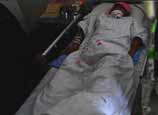
City News Service reported that Business Insider used data that only included public universities, although the magazine doesn't explain this and says only that it ranked schools with enrollments over 10,000, and it averaged FBI data from 2008 until 2011.
UCLA claimed that the magazine crunched the data. It said the magazine didn't distinguish between crime that happened on and off campus. Business Insider counted all the crime reports that went through the UCLA police, whose jurisdiction includes homes and businesses in West Los Angeles that have little or nothing to do with students or the university.
The crime reports also included data from two major medical centers run by the university, health clinics and off-campus housing. Business Insider admits this is a flaw, but it didn't take any pains to correct its data or even let readers know which campuses this affects.
UCLA issued a statement from director of media relations Phil Hampton that "to conclude that UCLA somehow is dangerous is a reckless mischaracterization of data."
"Safety is a priority at UCLA, and we are proud of our record. UCLA police take reports of crimes committed not only on university-owned and university-operated properties both on campus and off, but also crimes committed in neighboring off-campus areas where UCLA police have concurrent jurisdiction with other law enforcement agencies. Our students feel safe," the statement said.
Some campus safety experts also said the biggest problem with a list like this is that it actually punishes schools that are making campus safety a priority. Campus Safety Magazine writes that relatively higher crime statistics on a college campus signal that a university is doing a good job reaching out to crime victims.

















 Record number of hopefuls sit annual civil service exam
Record number of hopefuls sit annual civil service exam


![]()
